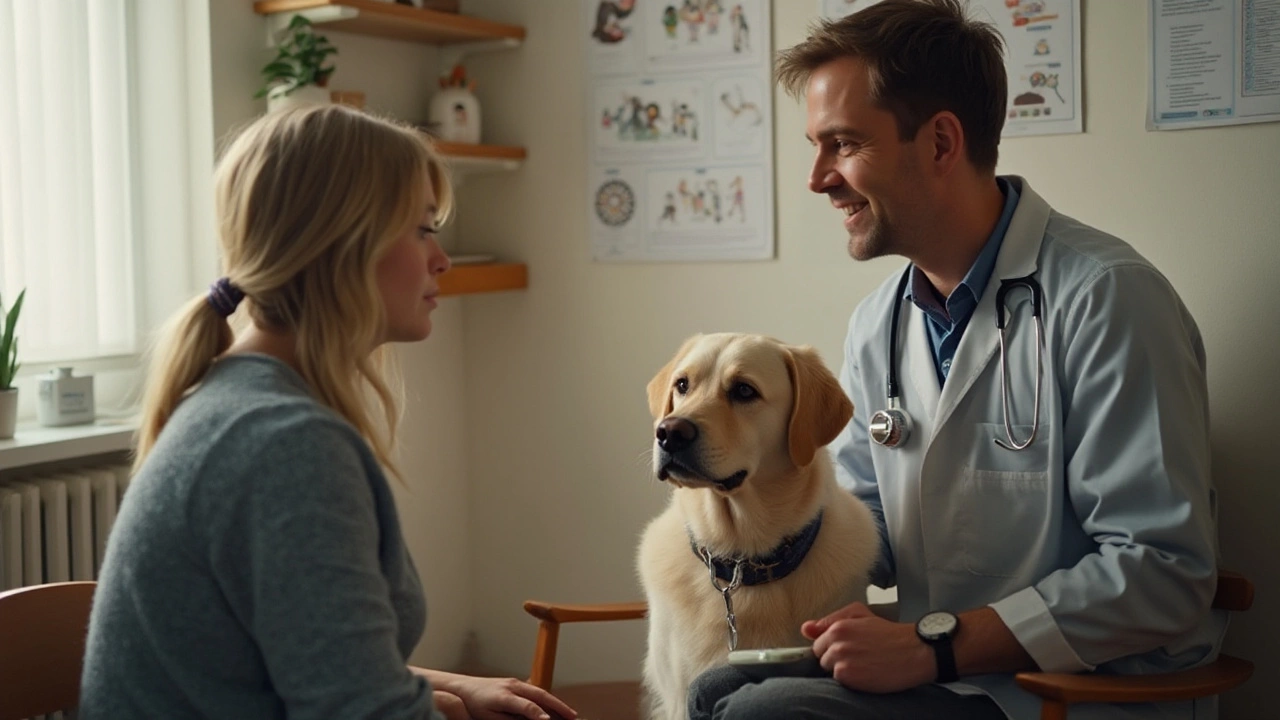Veterinarian Advice You Can Use Today
Ever wonder why your vet always talks about feeding times, collars or travel rules? It’s not random – vets base everything on what keeps pets out of the clinic. Below you’ll find the most useful advice from our own articles, all wrapped up in plain English.
Feeding Smarts for Dogs and Cats
When should you stop feeding your dog at night? Most vets say the last meal should be 2‑3 hours before bedtime so digestion isn’t fighting sleep. A steady schedule also steadies blood sugar, which can reduce night‑time whining.
Cat owners face a similar puzzle: dry food all day or set meal times? Free‑feeding can lead to obesity, especially with indoor cats. Experts recommend splitting the daily portion into two or three measured meals. This lets you track intake and spot changes that might signal health issues.
Everyday Safety and Comfort
Collars look simple, but wearing one 24‑7 isn’t always the best idea. Vets suggest a break every few hours, especially if your dog is prone to skin irritation. If you need constant ID, consider a lightweight breakaway collar that snaps off under pressure.
Travel can stress pets, but a little prep goes a long way. For flights, check airline policies early – some carriers let you buy a seat for your dog, which reduces cramped cargo space. If you’re driving, keep a water bottle and a favorite toy within reach to keep anxiety low.
Sleeping habits matter too. Dogs generally don’t need a night‑light, but a dim glow can help older dogs with vision loss feel more secure. Puppies, on the other hand, benefit from a consistent bedtime routine – a short walk, a calm cuddle, then the crate door closed for a solid sleep block.
Finally, keep an eye on food labels. Blue Buffalo and Beneful have sparked vet concerns over ingredients and recalls. When in doubt, choose brands with clear sourcing and minimal fillers. If you’re cooking at home, supplement homemade meals with dog‑specific vitamins – calcium and omega‑3 are top priorities.
All these tips come from real questions pet owners ask their vets. Apply them one step at a time and you’ll see fewer trips to the clinic, happier meals, and calmer nights for both you and your furry friend.
Posted By Bryndle Redding On 18 Jan 2025 Comments (0)
Do Veterinarians Recommend E-Collars for Dogs? An In-Depth Look
E-collars, often known as electronic collars or e-collars, are special tools used in training or managing dogs with specific behaviors. While they offer potential benefits like effective communication over a distance, they also come with concerns regarding their impact on a dog's well-being. Many veterinarians balance these pros and cons when advising pet owners. This article sheds light on what veterinarians generally recommend concerning the use of e-collars for dogs, offering tips and considerations for dog owners.
READ MORE